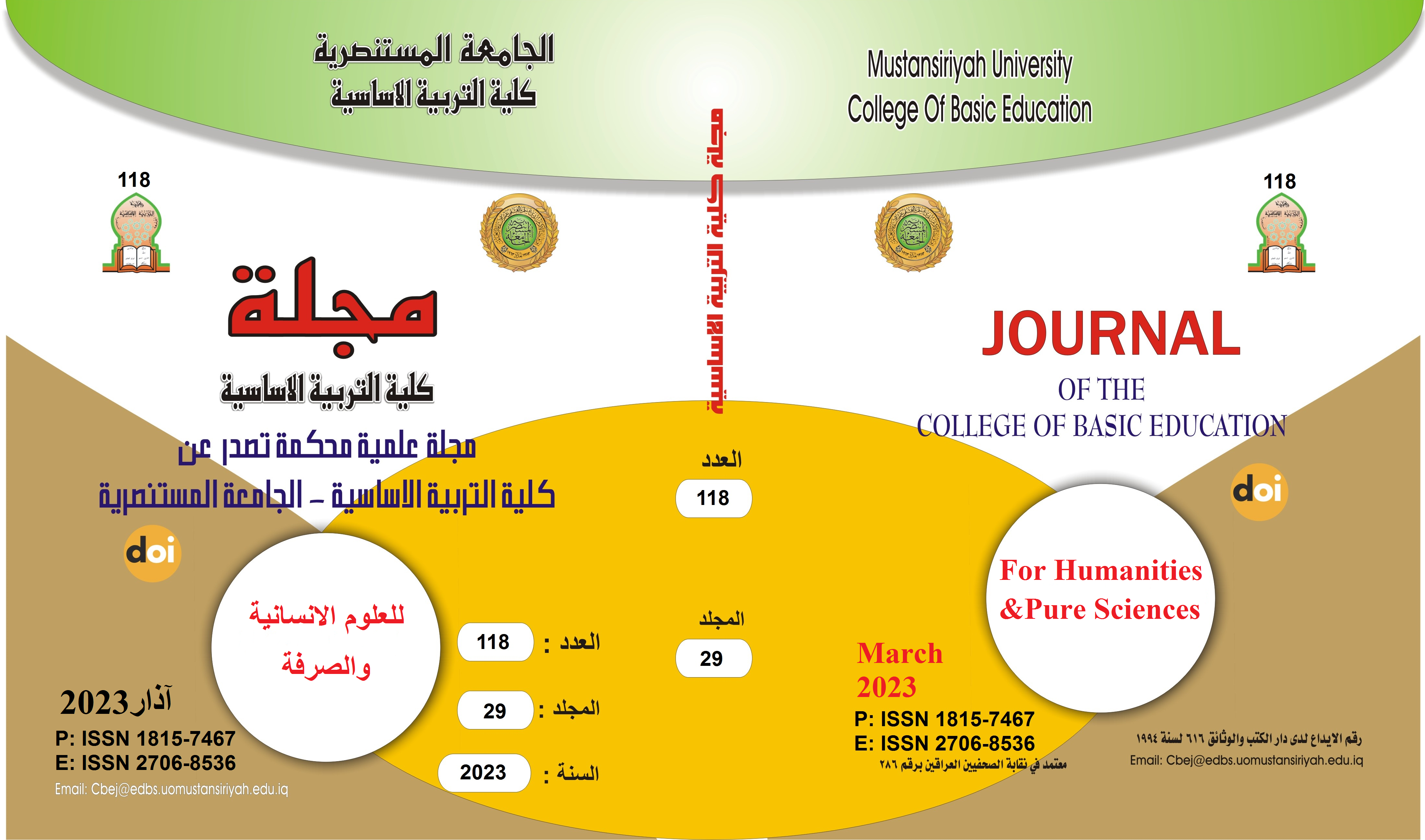The divergent thinking skills of the students of the Department of Mathematics in the Colleges of Basic Education and their relationship to their learning styles
Main Article Content
Abstract
Summary of the research:
This research comes within the context of the descriptive approach, which aims to identify the divergent thinking skills of the students of the Department of Mathematics in the Colleges of Basic Education and its relationship to their learning styles, by answering the following questions:
1. What are the divergent thinking skills of students of the Department of Mathematics in the Colleges of Basic Education?
2. Does students' performance in divergent thinking skills differ according to gender?
3. What are the common learning styles of:
A - Students of the Department of Mathematics in the Colleges of Basic Education?
b- Students of the Department of Mathematics in the Colleges of Basic Education?
C- female students of the Department of Mathematics in the Colleges of Basic Education?
4. Does the performance of students in the Department of Mathematics in the Colleges of Basic Education differ on the scale of learning styles according to gender?
5. What is the relationship between divergent thinking skills and learning styles of students in the Department of Mathematics in the Colleges of Basic Education?
The research sample was chosen in a stratified random way, as the research sample consisted of (329) male and female students from the fourth stage of the Department of Mathematics in the Colleges of Basic Education, with a rate of (29.67%) from the total community of (1108), distributed among (7) universities, which are (Al-Mustansiriya Mosul, Kufa, Tikrit, Diyala, Maysan, and Tal Afar). One division has been selected from each department of mathematics in the faculties of basic education.
In order to achieve the objectives of the research, the researcher took the following actions:
1 . Preparing the divergent thinking skills test, which consists of (20) paragraphs, including (15) essay paragraphs and (5) objective paragraphs distributed over its four skills (open thinking, flexible thinking, original thinking, and expanded thinking), with (5) paragraphs for each of the skills The four. The validity and stability of the test were confirmed as the stability of the test was (0.88).
2 . Adopting the learning styles scale prepared by (Mubarak, 2015) according to the Hermann model applied to university students and appropriate to the Iraqi environment, and its stability coefficient for the four styles (A = 0.80), B = 0.78, C = 0.77, D = 0.80), which consists of (120) items. Its validity and stability were confirmed as it was stable for the four patterns (A = 0.86, B = 0.93, C = 0.94, D = 0.93).
The two research tools (divergent thinking skills test and learning styles scale) were applied to the basic research sample, as the application lasted for a month from Wednesday (12/30/2021) until Monday (1/24/2022) and using appropriate statistical methods, the results showed the following :
1. The students of the Department of Mathematics in the Colleges of Basic Education have a level slightly higher than the hypothetical average of divergent thinking skills.
2. There is a decrease in the skill of original thinking.
3. The most common learning style among students is style (C).
4. There is a weak inverse correlation between divergent thinking skills and each learning style among students of the Department of Mathematics in the Colleges of Basic Education.
In the light of the research results, the two researchers recommended the need to include the curricula of the mathematics departments in the faculties of basic education on many activities and techniques that work to develop divergent thinking, especially original thinking, preparing training programs for teachers of the mathematics departments in the faculties of basic education for training in modern teaching practices related to the development of learning patterns in all its forms. The four, and suggested building a training program for mathematics teachers according to divergent thinking skills, and conducting a study on the teaching competencies of mathematics teachers according to the Hermann model.
Keywords: divergent thinking, students of the Department of Mathematics.
Research extracted from a master's thesis.
Article Details

This work is licensed under a Creative Commons Attribution-ShareAlike 4.0 International License.
